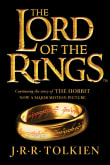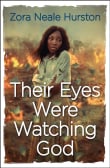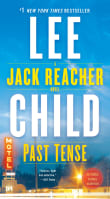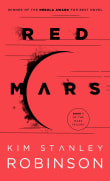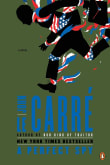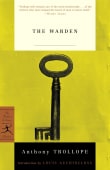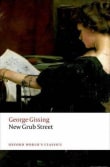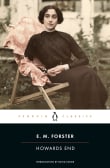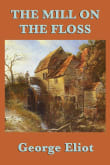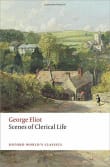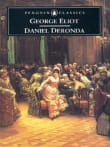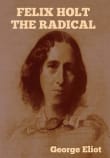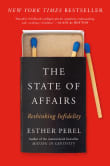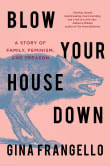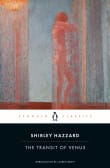Middlemarch
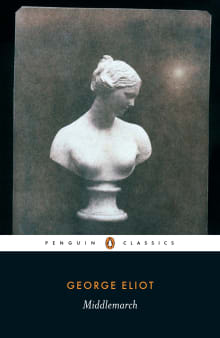
Book description
One of the BBC's '100 Novels That Shaped Our World'
'One of the few English novels written for grown-up people' Virginia Woolf
George Eliot's nuanced and moving novel is a masterly evocation of connected lives, changing fortunes and human frailties in a provincial community. Peopling its landscape are Dorothea Brooke,…
Why read it?
12 authors picked Middlemarch as one of their favorite books. Why do they recommend it?

To my mind, Dorothea is the original and quintessential embodiment of a smart, insightful woman struggling to belong to herself, which, for me, is a strong value.
And in 19th Century England, when claiming oneself was no small feat. I have held Dorothea in my heart ever since I read the book as a 20-year-old. Along with Isabel Archer in Portrait of a Lady. Both of them were heroines and pioneers.
From Janet's list on embody the spirit of finding autonomy.

In this book, George Eliot’s novel of provincial life in 1830s England, nearly everyone marries the wrong person. Even the future happiness of its heroine, Dorothea, when she finally unites with her true love, Will, is questionable. And yet it stands for me, not only as one of the finest novels ever written but one of literature’s greatest romances.
Virginia Woolf famously wrote that it is a novel “for grown-up people.” I believe it is essential reading because it reflects real life where couples are mismatched, love goes unrequited, and ambitions are thwarted. It illuminates the small ways our better…
From Annie's list on romance novels disguised as literary classics.

I am recommending George Eliot’s novel (published in parts 1871-72) because I believe it is as good as any of the great Russian novels and probably the best novel written in English. Eliot (real name Mary Ann Evans) was herself a revolutionary person. In 19th century England, she worked as an independent woman, lived with a married man (she eventually married him), and later married a man a lot younger than herself. Her novel is set in the early part of the 19th century when the aftereffects of the French Revolution were strongly felt in England, and there was even…
From Fathali's list on why revolutions fail.
If you love Middlemarch...

I took up Middlemarch after reading from various sources that it is many people's favorite book of all time—high praise, indeed! As a friend commented on social media: "I love Middlemarch. She gets inside people's heads so well it's embarrassing sometimes!" That is one thing I love about it.
Eliot's characters are each so distinct; they even speak differently. They come from such different backgrounds and perspectives: aristocracy, upper middle class, working class, professional doctors and lawyers, clergy. Some are deeply religious and ethical, others superficial and vain.
One important character is a young doctor with new medical ideas who…

After more than 50 years as an English prof, I confess I remain leery of long novels and am inclined to explain my disinclination to embark on epic fiction by saying I’m a ponderously slow reader, which poky pace I blame on my love of poetry, which demands utmost concentration.
Accordingly, only four summers ago, after three false starts scattered over many years, did I at last conquer Brothers Karamazov, a boast-worthy achievement for me. Last year my major conquest—a vastly easier, pleasanter read than Dostoyevsky, was George Eliot’s deservedly famous Middlemarch, which ran to 600+ pages in…

This is another of my go-to books in time of trouble.
Writing in 1871-72, Eliot goes back to the Midlands of her youth at the time of the Reform Act, 1832. So far, so dry as dust, I you say. But Eliot writes so well, creates such wonderful characters and deals with problems that still vex us today, not least the speed of change when you’d rather things stayed the same. But no one could not love the idealistic Dorothea, the frustrated Dr. Lydgate and the poet Will Ladislaw who becomes a great social reformer.
It’s one of the longest…
From Judith's list on where the past is another country.
If you love George Eliot...

As was the fashion of the time, George Eliot took on a male pseudonym, replacing her true name, Mary Ann Evans. Typically she extended her subterfuge by writing about male characters whose names figured into the titles of her novels, e.g. Silas Marner, Adam Bede, Felix Holt the Radical, and Daniel Deronda. She had strong female characters, too, but it wasn't until her penultimate novel, Middlemarch, that she granted a female character, Dorothea, the center stage. There are male characters in this book, too: Dorothea's husband, the pedantic scholar, Casaubon, the physician, Lydgate, and of course the…
From John's list on where writers write about what they know and don't.

I’ve read this novel many times and I find something new in these pages with every visit. The title refers to a town in England and we are in the mid-19th century, but if you think there’s nothing here for a modern reader, think again. During a time of great political upheaval, Dorothea, an earnest educated woman, marries a much older man, believing that with him she can live a life of the mind. However, she soon realizes that she is marginalized by her unemotional husband, destined to live an isolated and joyless life, a prisoner of her husband’s…
From Julie's list on for women recovering from betrayal or divorce.

Middlemarch is where I turn when I need a wise, empathetic narrator to renew my faith in human beings and their capacity for humor, tenderness, and insight. This novel has everything: love, courtship, and marriage; marriages gone horribly (but interestingly) wrong; financial reversals and re-reversals, suspense around inheritances; ambition and finding one’s calling; criminal malfeasance and exposure; illness and death and birth—all unfolding in one superficially ordinary town in the English Midlands. Even the most minor of the novel’s enormous cast of characters is indelible. I’ve come to know its dual protagonists, Dorothea Brooke and Tertius Lydgate, better than some…
From Pamela's list on George Eliot books to start with.

A novelist and essayist of the era before Forster and his true ancestor in terms of values and beliefs, George Eliot’s humanist approach runs through all her work. The richness of characterisation in Middlemarch means you understand every person’s point of view and the empathy and enlargement of sympathies that follows from this develop the moral imagination that humanists so prize. The interconnectedness of human lives is also a theme and the novel’s final lines contain an epitaph that is almost universal for any human life: “But the effect of her being on those around her was incalculably diffusive: for…
From Andrew's list on humanism from a life long humanist.
Want books like Middlemarch?
Our community of 12,000+ authors has personally recommended 100 books like Middlemarch.



